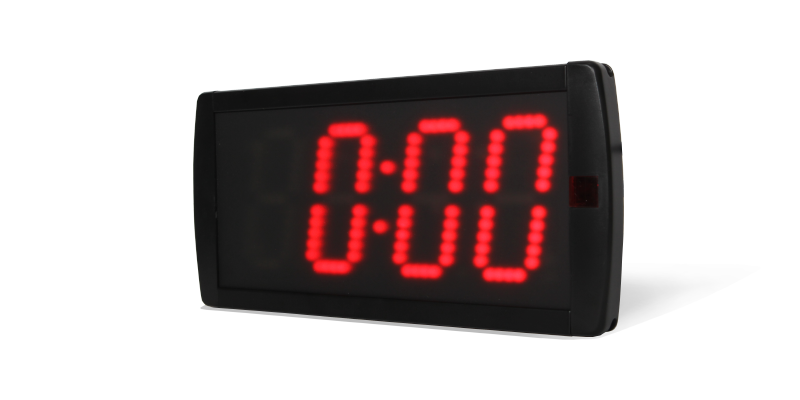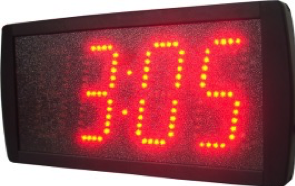
LED Industrial Clocks & Counters
If you are a basketball fan, you're probably familiar with shot clocks. In basketball, the shot clock is a timer designed to increase the pace of the game and scoring levels. Similar to a shot clock, a process timer is widely used in manufacturing settings to time a process and to motivate the operator to finish a task on time every time. Process timers are known to increase efficiency and production in manufacturing, as well as motivate your manufacturing staff just like other indoor LED Signs. LED Industrial Clocks & Counters provide simple communication answers in the workplace to provide a real-time standard or measure for any factory, automation plant, or production facility. Get accurate up or down counts on cycles, units, packages, time, days, and more.
Benefits of Process Timers in Manufacturing Production Systems
- Process timers let the operator know how much time they have to finish the task they have on hand.
- They motivate manufacturing staff—in a moving production line, a slow operator can delay everyone down the line, so timers create a sense of speed.
- They are inexpensive.
- Help to find bottlenecks in your production line.
- Reduce downtime.
How to Select a Process Timer for Manufacturing
- Interface: It should have an interface that's easy to use in order to quickly change the startup time. The most common interface is serial, and Industrial Ethernet is sought after.
- Start and Stop Trigger: The most common method to trigger the process timer is using dry contact (unpowered) inputs. Some process timers can be triggered with ASCII Control codes.
- Reset Time: The manufacturing process should have a quick reset time to avoid delays between resets.
- Audible Alerts: Does it have the ability to play an audible alert if the operator does not finish the task in his/her allotted time?
- Alarm Output: Does the process timer have the ability to trigger an alarm output based on a preset value?
 PLC Interface: Can it be interfaced with your PLC to easily change the startup time?
PLC Interface: Can it be interfaced with your PLC to easily change the startup time?- Input Power: 24VDC is most common in industrial environments for process timers.
- Operating Environment: Your manufacturing timer should be able to withstand harsh manufacturing environment.
- Installation: Compact and lightweight process timers are preferred for the ease of installation.
- MTBF (Mean Time Between Failure): LED process timers are typically rated up to 100,000 hours.
Electro-Matic Visual, Inc. manufactures process timers for various applications. We have been supplying process timers to some of the leading manufacturers around the globe for years. When looking to motivate the staff at your manufacturing plant, try a process timer as a tool to better motivation, increased production, and efficiency.


 PLC Interface: Can it be interfaced with your
PLC Interface: Can it be interfaced with your 
